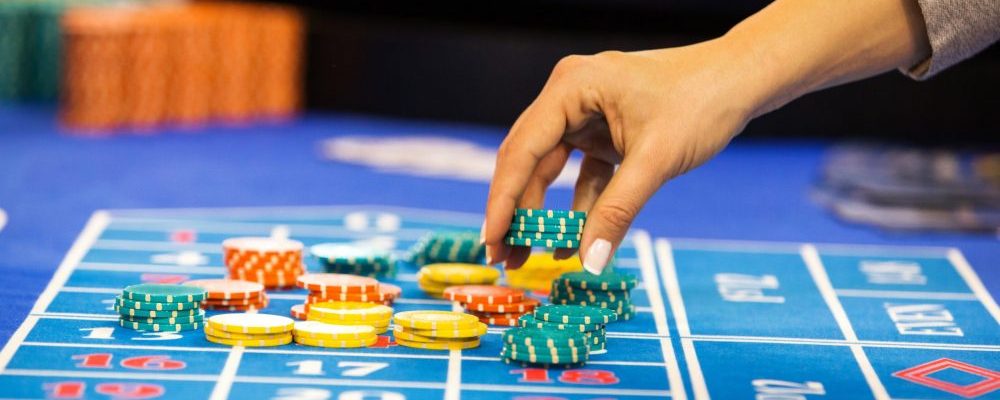Inpatient Gambling Treatment Minnesota
3/31/2022 admin
Inpatient Gambling Treatment Minnesota Rating: 6,2/10 5633 reviews

- Cached
- Inpatient Gambling Treatment Minnesota 2019
- See Full List On Recovery.org
- Inpatient Gambling Treatment Minnesota State
No matter who you are, if you have a gambling problem, there’s hope – and help.
Cached
Despite the fact that treatment works, nearly 90 percent of people diagnosed with a gambling disorder do not seek treatment.
National Center for Responsible Gaming, Top 10 Research Studies Impacting Gambling Disorders
Minnesota Alliance of Rural Addiction Treatment Programs (MARATP) MARATP was formed in 2017 as a 501(c)(6) non-profit to advocate for and with other providers who treat patients from rural Minnesota. The Minnesota Alliance of Rural Addiction Treatment Programs brings together diverse rural interests to address and advocate for strong Addiction. Treatment offerings. Mayo Clinic's continuum of addiction treatment services includes a state-of-the-art 30-day intensive program with on-site residence. In this highly confidential and professional setting, patients form a small community and receive 24/7 support in establishing their sobriety and developing recovery skills. Find Gambling Treatment Centers in Minneapolis, Hennepin County, Minnesota, get help from Minneapolis Gambling Rehab for Gambling Treatment in Minneapolis.
Call now: 1-800-333-HOPE Text: HOPE to 61222 Click to Chat
What happens when I call?
When you call 1-800-333-HOPE, you’ll speak with an understanding, specially trained professional who is ready to answer your questions. He or she will connect you with the resources you’ll need to make a positive step forward.
What happens when I text?
When you text hope to 61222, you’ll receive a confidential message from an experienced professional inviting you to share your concerns or questions. They can offer you reliable assistance and guidance as you move forward.
Will they know my name?
All communications are completely confidential and non-judgmental. The person you’re speaking with will only know what you choose to share.
Is it expensive?
The call is free, and most treatment services you might pursue are also free of charge for qualifying individuals throughout Minnesota, or priced at a sliding scale against your income.
I’m not comfortable discussing my problems with a stranger.
It’s natural and understandable to hesitate to share deeply personal – and sometimes painful – issues with someone outside your circle of relationships. But it can also be necessary to get the help you need. You’ll be speaking with someone in confidence who does not know you, will not judge you, and is there to help.
The more you gamble, the more you lose. Here’s why.
Casinos and other gambling games have built-in mathematical advantages to ensure that they will make money. Casino games and devices are based on random events or random number generators. Streaks and patterns are entirely random, and the next event is unpredictable and independent of previous events. Yet over the course of play, even these random outcomes are tipped to the casino’s favor.
Some gamblers begin to have an illusion that their lucky shirt or pushing a button a certain way gives them control, but the games are operated by random devices or cards.
The belief in “winning streaks,” “losing streaks” and “near-misses” is common but in reality, these patterns don’t exist. The next spin, hand, or drawing is random and unconnected to the last – and the casino always has the advantage.
In fact, there is a name for this misconception: the gambler’s fallacy. The gambler’s fallacy is the belief that if something has not happened for a long time, it is bound to happen. Just because a flipped coin lands on heads nine times in a row, it doesn’t mean that it is more likely to land on tails– the chance is still 50/50.
For free, confidential assistance, call 1-800-333-HOPE or text HOPE to 61222.
How to avoid the temptation to gamble
Inpatient Gambling Treatment Minnesota 2019
For some, a support group can be a tremendous help. You can find a Gamblers Anonymous support group online.
Set goals and set yourself up for success. Create short- and long-term goals to help you focus on recovery. Avoid high-risk situations, such as meeting at gambling venues or carrying around large amounts of money.
Face your feelings and talk about them. Speak openly with someone you trust to reduce stress and acknowledge your feelings without blame or judgment.
Focus on the positives and find healthy alternatives. Acknowledge your achievements and find healthy new hobbies or activities to reduce the temptation to gamble.
Realize lapses may happen. Many people experience lapses, but that doesn’t mean you have failed in recovery. Learn from your lapses to see how you can identify triggers and avoid future lapses in recovery.

House of Charity generously supports MinnPost’s Mental Health & Addiction coverage; learn why
Minnesota may have bounteous options for chemical dependency treatment, but when it comes to treatment for gambling addiction, options in the state are much more limited.
“We are the only inpatient gambling-addiction program in Minnesota,” said Sheryl Anderson, program coordinator for Project Turnabout’s Vanguard Program, a Granite Falls-based treatment center with 20 inpatient beds for men and women facing gambling disorders.
Though just one program may seem small, it’s still big compared to what’s offered in many other states. “There are about 10 gambling-addiction inpatient treatment programs in the country,” Anderson said. “And we are one of only three programs of any significant size.”
Why are there so few options for gambling-addiction treatment? One reason is that gambling addicts often mislabel the disorder as something else, Anderson said: “People blame their problems on relationship issues or financial difficulties. The truth is that gambling addiction causes the relationship issues and financial difficulties in the first place.”
It can also be hard to persuade a person with a serious gambling addiction to enroll in a residential treatment center. Unlike an alcoholic or a drug addict, a compulsive gambler may see his or her addiction as the only way to get out the very problems that the addiction has created.
“An alcoholic would never say, ‘I recognize my problem is drinking, but if I drink a little bit more, my problems will be solved,” Anderson said. “A person who is addicted to gambling will say, ‘Maybe if I gamble one more time, I’ll win big and my problems will be solved.’ As long as there is a little bit of money to scrape together for one more bet, there will always be a problem: No matter how much they win, it is never going to be enough. It just keeps sucking them further and further down.”
Move with urgency
Because there is a general sense of secrecy and shame that surrounds gambling addiction, Anderson said that it takes great strength for a person to come forward and ask for treatment.
When a person addicted to gambling calls Vanguard, admissions counselors try to encourage them to come in for treatment as quickly as possible. Sometimes a person will call for information about the program, and then schedule treatment in two or three weeks, Anderson said, but during that time, their gambling can continue, pulling them deeper into the downward spiral that the addiction creates.
“With those calls,” Anderson said, “it’s important to acknowledge that they are likely in crisis right now if they’ve picked up the phone, so we spend extra time with them, letting them know that we encourage them to come in as quickly as they can. We tell people we understand that it is hard to step away from life, but if they feel the urge to gamble, they don’t have to adhere to their set entry date. They can come in sooner if they need to.”
Compulsive gamblers have high rates of suicide. As they fall deeper and deeper into debt, as their work and personal relationships crumble, some see no other way out of their problems.
“They have the idea that, ‘I’m worth more dead than alive,’ Anderson said. “Very often they try to make their deaths look accidental. The shame and secrecy around this addiction makes for great self-loathing, self punishing attempts at suicide.”
Supported by legislation

Project Turnabout has been in operation for 45 years. The Vanguard program was added in 1991, funded in part through proceeds allocated from a small percentage of unclaimed lottery funds.
“Before Minnesota allowed gambling to be legally part of our state, people in the Legislature really had some foresight and said, ‘We need to make some previsions for some type of treatment for gambling addiction,’” Anderson explained. “The Department of Substance Abuse’s gambling division was established to funnel money into treatment programs.”
Vanguard, which emphasizes affordability for participants (a typical 30-day treatment program runs around $7,500), also offers scholarships for Minnesota residents without funds or insurance coverage. The scholarships are partially offered through a grant from the state Department of Human Services; the rest is made up through fundraising efforts.
The scholarships are needed. “For the most part, people who are at the point in their gambling addiction when they are willing to seek inpatient services have by and large tapped out most of their resources,” Anderson said. “They may still have a job, but just barely. And they tapped into or cashed out 401k.”
Success rates for Vanguard graduates are higher than the national average, Anderson said: “Between 65 to 70 percent of our alumni are successful in working their recovery program. If people follow their after-care plan and continue doing the things that are supporting their recovery, the success rate is even greater.”
Post-treatment surveys report that 83 percent of Vanguard patients indicated an increase in their quality of life after treatment and 88 percent of residential patients stated they felt their needs were met while in treatment.
One key program that supports participants’ continued recovery from gambling addiction is participation in Vanguard’s alumni group.
“It’s called Growth Group,” Anderson said. “Graduates come back here on the second and fourth Saturdays of the month. They meet with staff and other alumni, sharing their strengths, struggles and hopes. They also meet with current residents. It is an incredibly valuable experience for people in the midst of their treatment to see people who look and sound just like them, who’ve come out the other side of their addiction. They realize, ‘If he can do it, so can I.’ or, ‘If she can make it, there is hope for me.’ It is really powerful for everyone.”
See Full List On Recovery.org
Get MinnPost in your email inbox:
You can also learn about all our free newsletter options.Read these stories next

Job of her dreams: Wilder Foundation’s Pahoua Yang inspires clients to lead happier, healthier lives